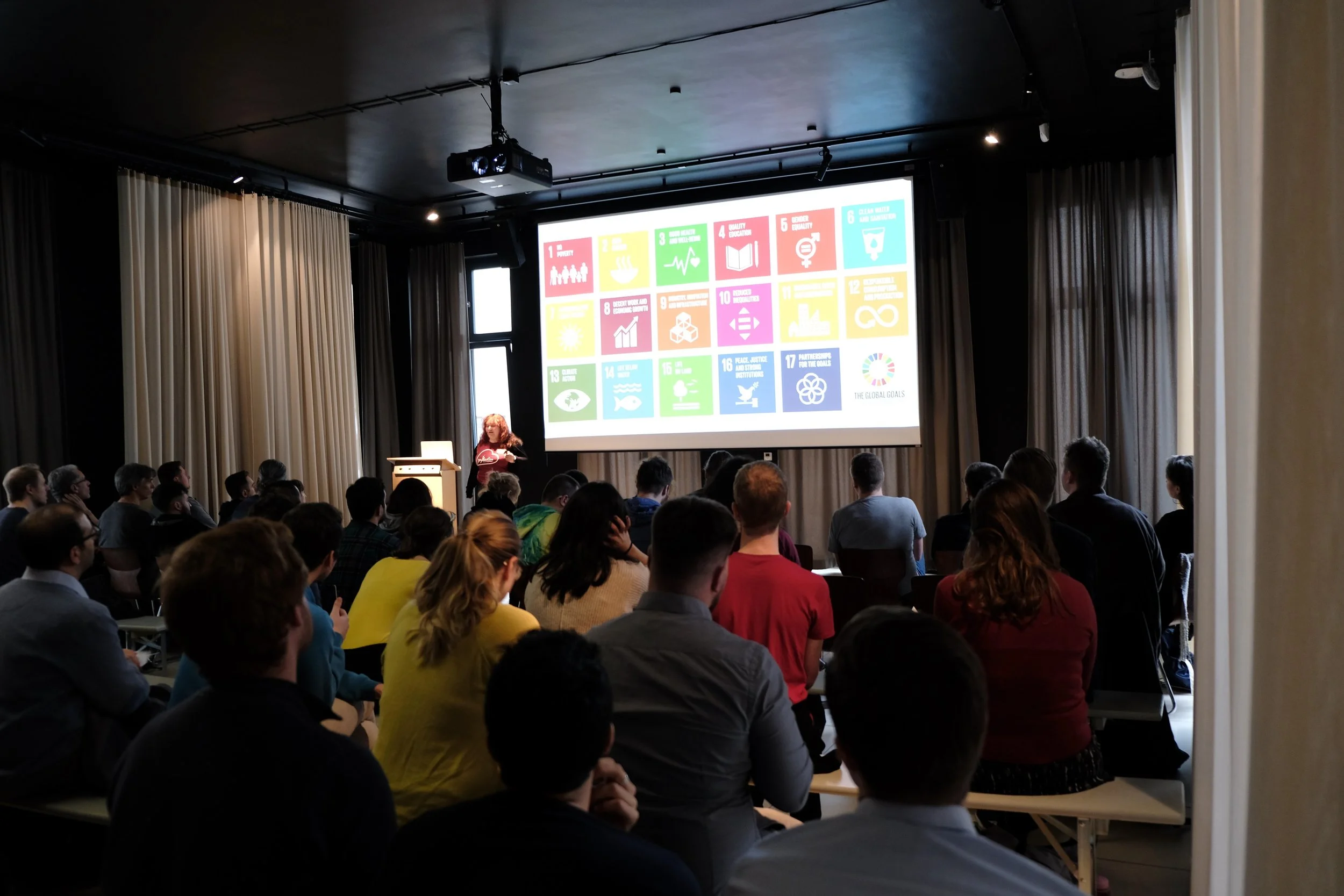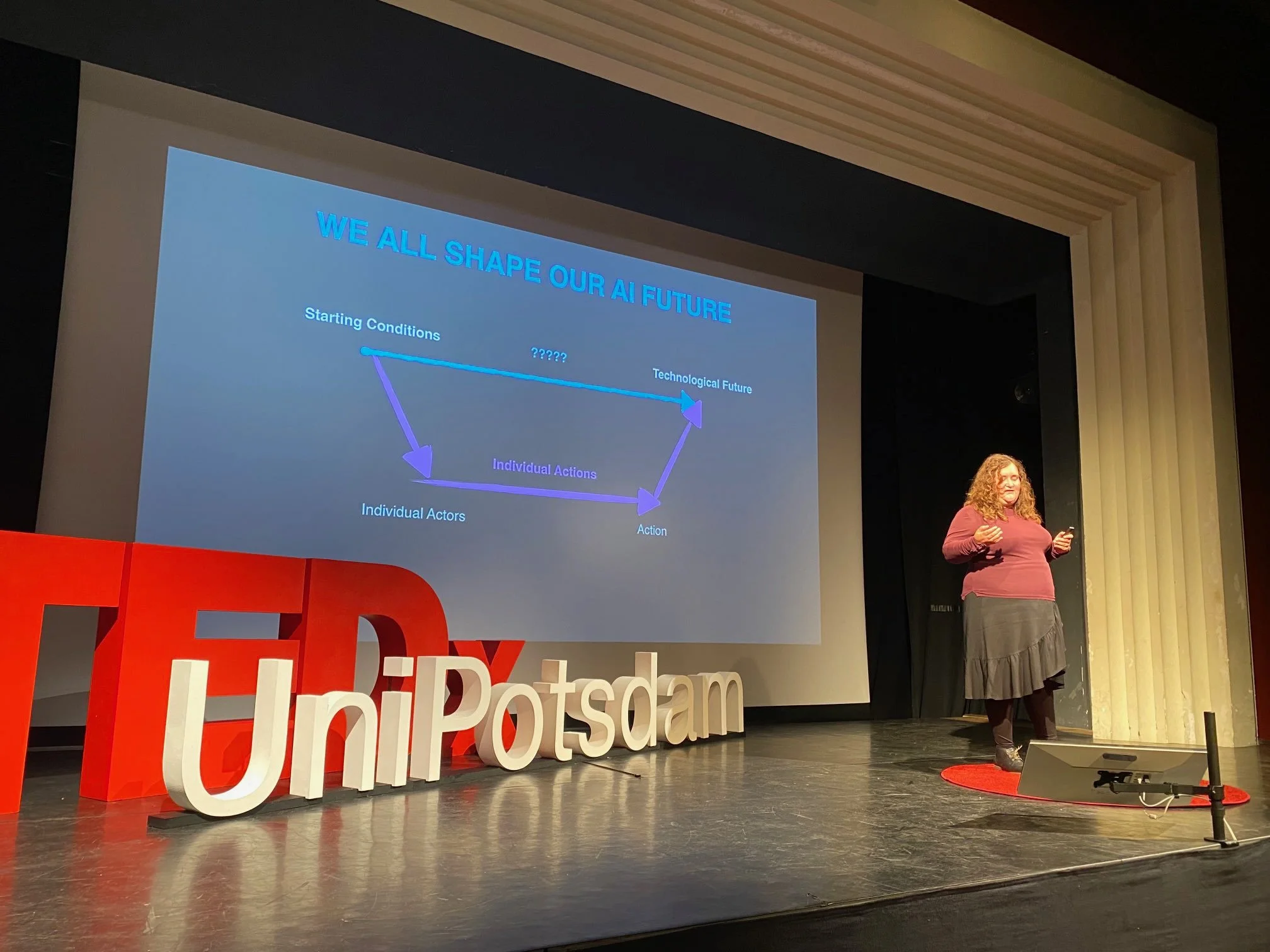How I learned confidence by trusting what I already know
I still vividly remember my first conference talk. In August 2013, I was selected to speak at eurucamp, a tech conference for lovers of the Ruby programming language. I was thrilled to be selected, and so nervous that my stomach churned at just the thought of entering the stage. I managed the talk, and apparently the audience loved what I talked about. But afterwards, some guy in the audience approached me and said: “You were so nervous that I wanted to come up on stage to you and help you calm down.”
That feedback was embarrassing, but not in the least surprising. One of the reasons I signed up for this talk was to practice public speaking and learn how to overcome my stage fright.
Fast-forward six years. By now, I have spoken at more than 20 different tech conferences and meetups. Each time, I am still nervous as hell. Just doing more talks has made me a more competent presenter, but not a more confident one.
Out of desperation, I also attended several public speaking trainings. Unfortunately, those mainly made me aware of all the different ways I was failing as a public speaker, and more self-conscious and nervous as a result.
Then, the pandemic hit in early 2020. Stuck at home and bored, I stumbled upon the email newsletter of Michael Gendler and Tristan Montebello. They were trialing a new online group coaching format for public speaking. Not having anything better to do, I decided to give it a try.
Their “Ultraspeaking” approach was unlike any public speaking training I had experienced so far: No preparation time for speeches, no explanations of how to project our voice, modify our body language or organize our talks. Instead, they made us practice with short, intense and super fast-paced speaking games. For example, creating an analogy out of two random words in less than 5 seconds. And then do it again, again and again, until we reached a state of flow. Speaking in front of a group of 15-20 people watching you stumble, over and over and over, until it became effortless.
I was hooked. This felt incredibly embarrassing, but also incredibly fun. And I felt that by now, I had nothing left to lose anymore with my public speaking fears. I signed up for their first proper online course, “Fundamentals”. The games progressed in complexity, adding in training for musicality, pausing and storytelling.
The class was intense, one hour three times a week, for five weeks. I could feel my speaking anxiety wall up. I barely had time between the classes to digest all the adrenaline generated in each lesson. I slept poorly in the first weeks of the class. But eventually, the anxiety disappeared. For the first time in my life, I felt that I could speak up in a group without my voice shaking.
Graduation came. And I was offered the opportunity to continue my training with Michael and Tristan, to become one of the first certified coaches in their program. Which involved two more months of intense daily practice, and assisting as a coach-in-training at the Fundamentals course. These three months in total were one of the most intense training experience of my life.
Coming out of it, I felt ready to take on any public speaking challenge thrown at me. And opportunities to apply my learning started to come in over the following months. My first paid speaking engagement. Coaching Ultraspeaking students as a side gig. A TedX talk.
And, with maybe the most impact, a dream job offer from a startup where I aced the interviews without any preparation time. A job that involved me stepping up from an engineering role into management, setting up an entirely new engineering department. A job that involved leading and participating in online meetings all day. A job I could not have done without the confidence to speak and think on the spot, without script or preparation.
And that was the deeper benefit I got out of learning confidence in public speaking. I learned how to trust what I already know. To speak from my own experience, tell my own stories, rely on knowledge that was already in my head and heart. I no longer felt a need to hide behind deep research and memorized knowledge, perfectly scripted talks and rehearsed jokes. I learned that confidence and competence are only loosely connected.
Beyond public speaking, this newfound trust that my experience is worth sharing also transferred into my writing, an activity that I actually enjoy more than speaking. Before, I would write heavily researched articles that would take me 15-20 hours to get right. Now, I am experimenting with telling personal stories that don’t involve any research at all, and take less than five hours from idea to publication.
Paradoxically, since I achieved confidence in public speaking, I am doing a lot less of it. It feels like a challenge I finally achieved. I have grown a lot more selective about what I speak about in public. So when I do speak up, it no longer feel like suffering through a painful experience. It feels like a magic moment of sharing something I am passionate about with an audience I care for.


